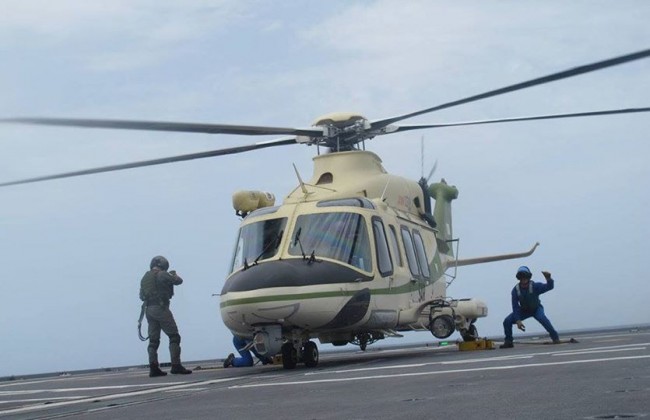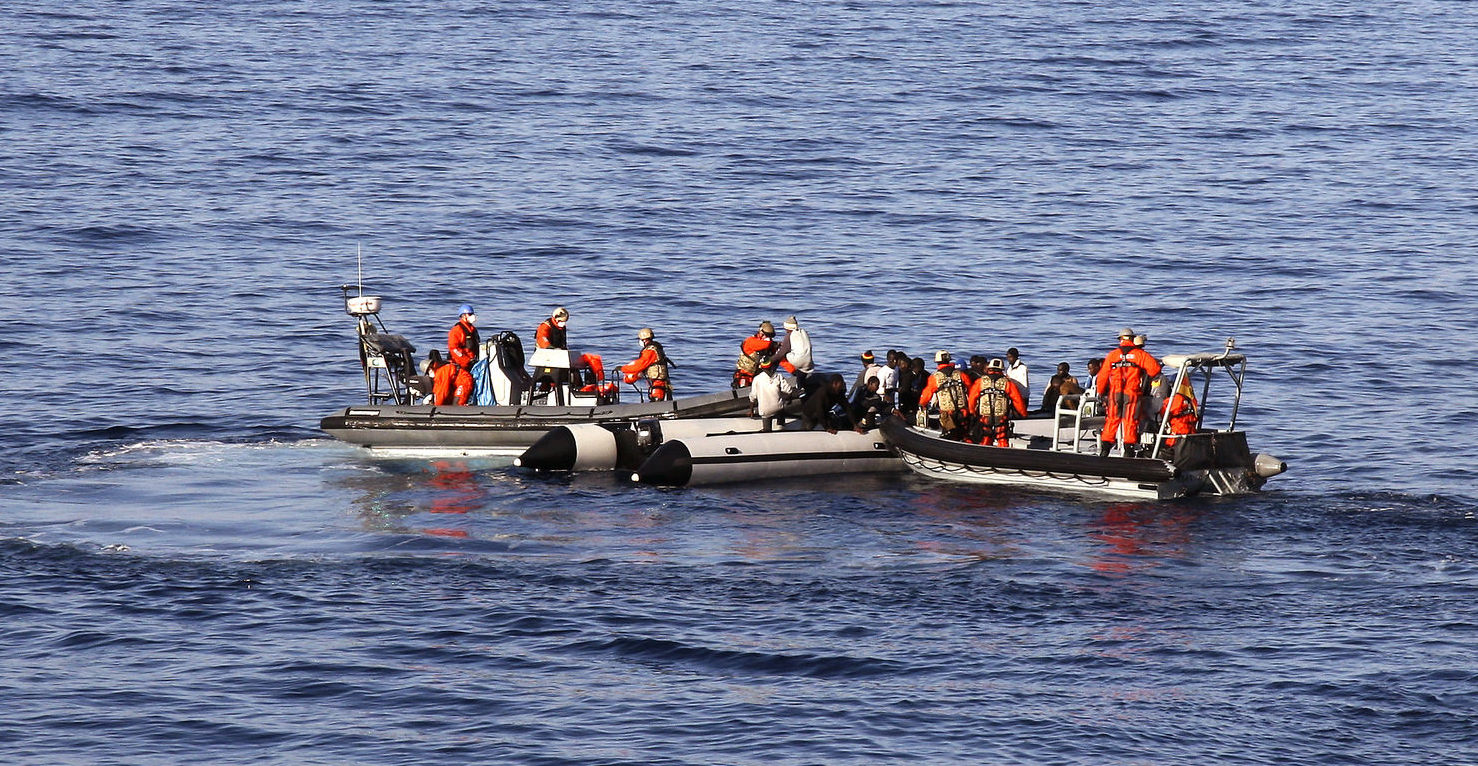EU operation in the Mediterranean. True, false. To twist the neck of a few cuckoos

(BRUSSELS2) The forthcoming military naval operation of the European Union in the Mediterranean (EUNAVFOR Med) has given rise to a series of observations and comments which sometimes bear only a very distant relation to reality and look more like decoys, or even fads. How to see clearly?
Why hunt the traffickers?
Until now the Europeans did not dare to attack the traffickers head-on. Despite some effort, they had a relatively noticeable peace and could go about their business as they pleased. Going in search of the "profiteers" of the system is not really abnormal. It won't solve everything, but it's a start. This operation does not, on the contrary, prevent more determined action by the European Union in terms of solidarity with the countries most affected by immigration, to review or not to review the asylum policy of the 28.
Won't the effect just lead to moving traffic ?
It's a risk, sure. Some traffickers will prefer other routes. But already without operation, the roads are diversifying. The real question then is: is doing nothing better? A European migration expert confided to me recently: previously we had a transfer between the sea route (Libya/Italy) and the land route (Turkey-Bulgaria/Greece), today this is no longer the case, we see the traffic increase on both roads...
Why a military operation?
In fact, it is not strictly speaking a military operation but rather aa police operation at sea, with military means. The use of military means is quite simply required for a series of reasons. One is simply operational. Only the navies have means adapted to the high seas, both powerful and multimodal, able both to accommodate a large number of shipwrecked people and to ensure the protection of other ships. The second relates to the risk involved. The traffickers are not children at heart and have already used weapons of war to secure their catches. The third is quite simply legal. The law of the sea only authorizes the "right of visit" (= search) to "warships" (and to ships with law enforcement) against suspicious ships (*). Finally, and this should not be overlooked in these times of economic crisis, there is a question of budgetary and capacity opportunity. Only the marines have a large capacity that can be dispatched, on short notice. And the operation is then supported by... the defense budget.
Can we act without a United Nations mandate in territorial waters?
No. It's impossible. It's not the Europeans who are going to start playing that game. All the States are putting this condition on the table in order to act. And many of them add that an agreement is needed from the Libyan government, or even from the two Libyan governments. Without a United Nations resolution, the operation will take place but without entering territorial waters (this is the same for the ships of Operation Triton, for example). NB: Except in cases of extreme emergency, to go to the rescue of a ship in distress. The law of the sea (and the custom of seafarers which is such a strong obligation) imposes to come to the aid of any vessel in distress.
... and on the high seas?
The question is complex from a legal point of view. Everything depends on the action taken, the ship concerned (its flag), the qualification of the facts (or the suspicion of the facts). But from a general point of view, without an explicit mandate from the United Nations, the operation will be more complicated and more limited. The transition to phase 2bis (search and arrest ships flying other flags) will therefore not be possible (unless agreed with the flag State).
Are we going to hit ships full of migrants ?
Pure idiocy! The European objective is to neutralize the ships, therefore to make them unsuitable for reuse, once emptied of their migrants. This is already happening, in all discretion. The German Navy indicates in particular that it regularly destroys all ships (zodiac, fishing boat, etc.) once the transfer of all migrants has been ensured (read in particular: Off the coast of Libya, European navies unite to save more than 4000 migrants from the waters).
Can we / will we hit ships near the Libyan coast?
Italian Prime Minister Matteo Renzi was the first to launch the idea of going to strike on the Libyan coast, or even using drones. It was in the United States during his visit to the White House and to a think-tank in Washington. Since then, this idea has polluted the debates. But we are more in the psychological threat than in reality. You have to realize that, even with authorization from the United Nations, it is a risky operation. The Libyan coast is not, from this point of view, the Somali coast, where a shooting operation by helicopter was possible without too much risk. This can be done with helicopters, as during the operation in Libya in 2011, but this requires serious military and political preparation, in particular to ensure that no anti-aircraft defense or even RPG fire will target the helicopter flying at low speed. It is a military technique that very few countries have mastered in fact and that even fewer governments are ready to ensure. To date, two States are capable of carrying out this type of mission - France and the United Kingdom -, and to a lesser extent Spain or Italy. And only one or two are able to assume the political risk (France, Italy). As for armed drones, it's simple, Europe doesn't really have any or at least doesn't really have the possibility of using them solo. In the end, I don't see the EU carrying out this type of mission with this kind of danger.
Why not act in the territorial waters of the Member States?
A military operation carried out under the CSDP normally has no capacity for action on the territory of a Member State (= normally including territorial waters). This is the role of the national authorities, if necessary aided by resources from other Member States, either bilaterally or through the coordination of resources by the European agency Frontex.
Will this operation be effective?
Many commentators are very pessimistic. Personally, I have some doubts about this atmosphere of doubt. I had seen the same very skeptical comments, even completely opposed, at the start of the operation in Chad (a sure failure, some experts said) or for the anti-piracy operation on which not many people were betting a kopeck . Today these two operations have proved, each in their own way, a certain success. The mere presence of military vessels in certain waters should "calm down" some traffickers a little and force them either to look for other modes of crossing, or to look for other more profitable modes.
Can we expect quick results?
No. It's a reality. The operation could be launched in June, at least in its phase 1 if there is no obstacle at European level. But it will not reach its full operational capacity until the end of August, at the end of the summer. Either at the end of the most difficult season in terms of migration. We are thus more in the installation of the operation in time. The real effect will therefore be to be verified, initially, in the fall for the short term, and next year or even the following year, for the medium-term effect... No need to hope before any effect.
(Nicolas Gros-Verheyde)
(*) Article 110 of the Convention on the Law of the Sea (UNCLOS) Right of access
1. Except in cases where intervention proceeds from powers conferred by treaty, a warship which meets a foreign ship on the high seas, other than a ship enjoying the immunity provided for in articles 95 and 96, may not only board if he has serious reason to suspect that this vessel:
- (a) engages in piracy;
- (b) engages in the transport of slaves;
- (c) is used for unauthorized broadcasts, the flag State of the warship having jurisdiction under Article 109;
- (d) is without nationality; Where
- (e) actually has the same nationality as the warship, although it flies a foreign flag or refuses to fly its flag.
2. In the cases referred to in paragraph 1, the warship may verify the documents authorizing the wearing of the flag. To this end, he may dispatch a boat, under the command of an officer, to the suspect vessel. If, after checking the documents, the suspicions remain, he can continue the examination on board the ship, acting with all possible consideration. (...)
4. These provisions apply mutatis mutandis to military aircraft.
5. These provisions also apply to all other vessels or aircraft duly authorized and bearing external markings clearly indicating that they are assigned to a public service.

